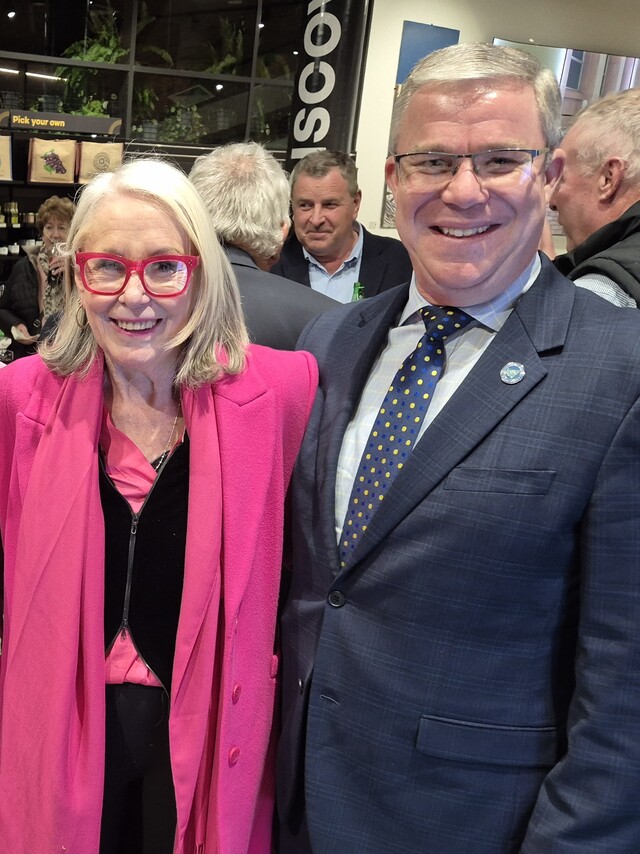In each edition we feature the views of a Local Government Association President. The following is from Councillor Julie Hansen, President of the Victorian Local Governance Association.
The September 2001 Local Government FOCUS Editorial bravely entered the territory of Local Governments’ capacity to engage in meaningful structural reform. The editorial rightly identifies the disruptive impact of the savage Victorian reforms. The VLGA was prime among the critics of the harsh process applied to Victoria’s Local Governments.
However, at a time when most of the rest of Australia is reviewing the appropriateness of its existing Local Government structures and boundaries, it is probably incumbent on Victorians to provide some perspective on the reforms. The job losses, the artificially applied competitiveness which all but destroyed collaboration, the corporatisation of Local Governments and the excision of Councils from their communities are well known.
We have heard a great deal about the centralisation of control of our Local Governments and the manipulation of the appointment of Chief Executive Officers. Stories abound about the domino collapse of town economies as the Shire Offices closed down.
There are other stories that need to be told if the record is to be a balanced one. The VLGA frequently argues that Local Governments in Victoria are emerging from the State administered shock therapy of the 1990s as a much stronger force than they have ever been in the past.
Local Governments are emerging in a more effective incarnation at the very time when they are needed, at a time when we are once more allowed to talk about ‘social capital’.
In Victoria our Local Governments are playing an important part in rebuilding communities and restoring community confidence in our political systems. It may be ironic, but the same Council amalgamations that shattered the way communities traditionally felt about their Local Governments have opened up some newpossibilities. As they emerge into their new place in our political system, Local Governments are discovering they have real capacity.
Victoria’s new Local Governments have the capacity to connect and engage people and build community, to provide a model of quality governance that can influence the way Australians view their political institutions, to throw out serious challenges to State and Federal Governments.
Local Governments can now engage in serious social, economic and environmental planning in a manner hitherto unheard of and they can have a meaningful impact on physical and social infrastructure. The best examples of this sort of leadership are most impressive. With confidence based on enhanced research capacity, Councils are serious participants in many major debates of the day, debates about community values and the planning of our cities and what is needed to strengthen our country towns. Councils are being listened to when they speak.
Victorian Local Governments are playing a vital role in addressing the impact of drugs and poker machine gambling on our community fabric. They have facilitated development of alternative banking facilities. Councils have established ‘friendship cities’ with East Timorese towns.
Victorian Local Governments are beginning to provide a quality of leadership and governance that is going to have an impact on the culture of government in our State. There is still quite a distance to travel. Victoria’s Local Governments are not yet making the most of the new opportunities. They are still acting in isolation. They are timid, Councillors are often afraid to govern on behalf of and with their communities. There is still a high level of residual community concern that the real business of Councils is being conducted in caucus or closed meetings. There are still some Victorian Councils where the formal Council meeting lasts less than half an hour!
Pre amalgamation, many Councils tended to be clubbish, closed and parochial. Some of the emerging Local Governments have not escaped from this stereotype. However, most of them are now more strategic, they plan for their long term financial, infrastructure and social needs with a greater sophistication.
The VLGA would not wish the Kennett approach upon other states and in some senses the post reform gains have been made in spite of the heavy handed changes not because of them. However, the VLGA argues that our communities need effective local governance if faith in our political institutions is to survive.
With this comment in mind, we need to be collectively ready to address the appropriateness of our current Local Government institutions and we must be ready to embrace and play the leadership role in achieving appropriate reform. In the long run it will be worth it and our communities and our political system will benefit.







